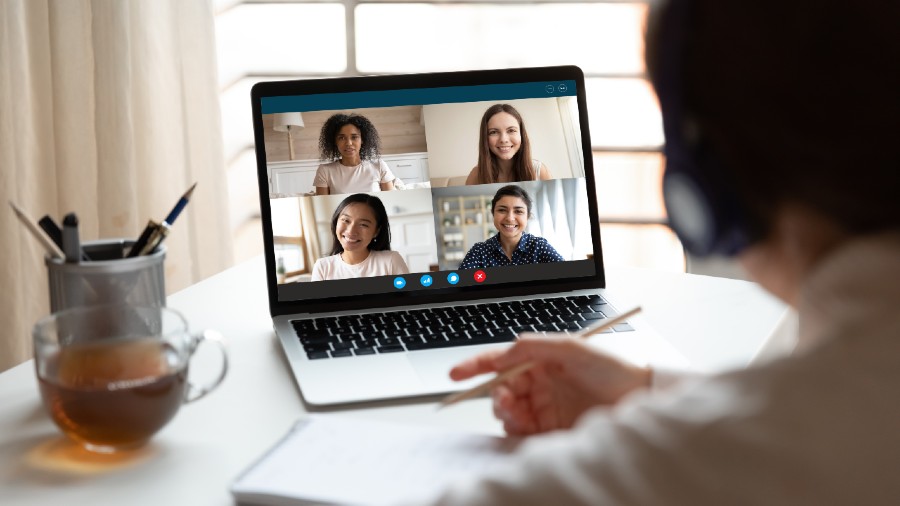A year and a little more after the pandemic, a bulk of the communication has shifted online: conferences and classes, job interviews and meetings, talks and even exhibitions.
Syamantak Ghosh, a senior research fellow at the Indian Institute of Chemical Biology, Calcutta, attended the annual conference organised by the RNA Society, a non-profit international scientific society. The conference this year, however, happened online. Syamantak concedes that the in-person interaction can never be achieved in the online mode. “The presentation was recorded and pre-uploaded. And the scope of information exchange was also very low.” In
a non-pandemic year the meeting would have been organised in Prague or Berkeley or Krakow and Syamantak would have been able to meet other scholars beyond the screen-square experience and well beyond the stipulated one or two hour slot.
He would also have been able to soak up the host city’s history and culture, which is always equal to reading several books.
But there are utilitarian benefits too of an online international experience. As Syamantak puts it, “The expense of going abroad and staying there for a few days can sometimes burn a hole in a scholar’s pocket if she or he does not get a travel grant. But here you can attend an internationally held annual meeting even on your smartphone.”
Suprovo Ghosh, who is a PhD student of electrical engineering at the University of Texas at Dallas, US, was offered a three-month internship in a tech firm headquartered in California this summer. He would be working as a design intern. He says, “This would give me an experience of how the industry works and how different it is from academia. So upon graduation I would be able to decide whether I want to choose industry or academia as a career path.”
The interview that secured him the internship was an online one. Says Suprovo, “It is important to apply early and use LinkedIn to connect with company officials and talk to them about opportunities.” In case one is not very technologically sound, it is always best to seek out the help of someone in the know about online video platforms.
Suchita Mukherjee was cooped up in her California home earlier this year, working on her master’s thesis. She too shares her virtual experience. “There were a lot of Zoom calls and asynchronous iterations of review and feedback between me and the committee members,” says the student of computer science.
Suchita was dejected as she was unable to fly down to India and visit her family and had to work remotely the entire time. But her hard work did pay off — she received the College of Engineering Master’s Thesis Excellence Award.
“This award was a wonderful ending to my master’s journey. The pandemic has impacted our human support network. Attending online events might not seem helpful but it helps build community,” she says.
Dipayan De defended his doctoral research work and submitted his thesis to Calcutta University two months ago in the online mode. “Although it is a less cumbersome process [than the traditional in-person mode], the pressure of defending your thesis remains the same,” says the student of the Indian Institute of Chemical Biology. He is now aspiring for a post-doctoral position abroad and is putting the online form of communication to its utmost use for his applications and interviews. He says, “In the post-pandemic situation, we are using the online platform a little bit more but people are willing to communicate and share their ideas as before. Everyone knows it is a difficult time for us but my experience till now has been wonderful.”
Avijit Goswami had always envisioned a career in the industry but when the mighty virus was wreaking havoc the world over, he started networking through LinkedIn and bagged an offer. “Online interviews save a lot of time and money spent in travelling and helps one explore multiple options simultaneously,” says Avijit who has recently joined as a senior scientist at a Bangalore-based company.
Avijit, who was a postdoctoral fellow at the Indian Institute of Science, Bangalore, prior to this, says, “It is important to sound as confident as possible during the first telephonic/online interview as that acts as a driving force for subsequent rounds of interview.”
Given the resilience of the coronavirus, it is most likely that in the months to come online interactions, in all their variety, will only intensify. Instead of looking bad on the good old days it might make better sense to embrace and keep moving.











